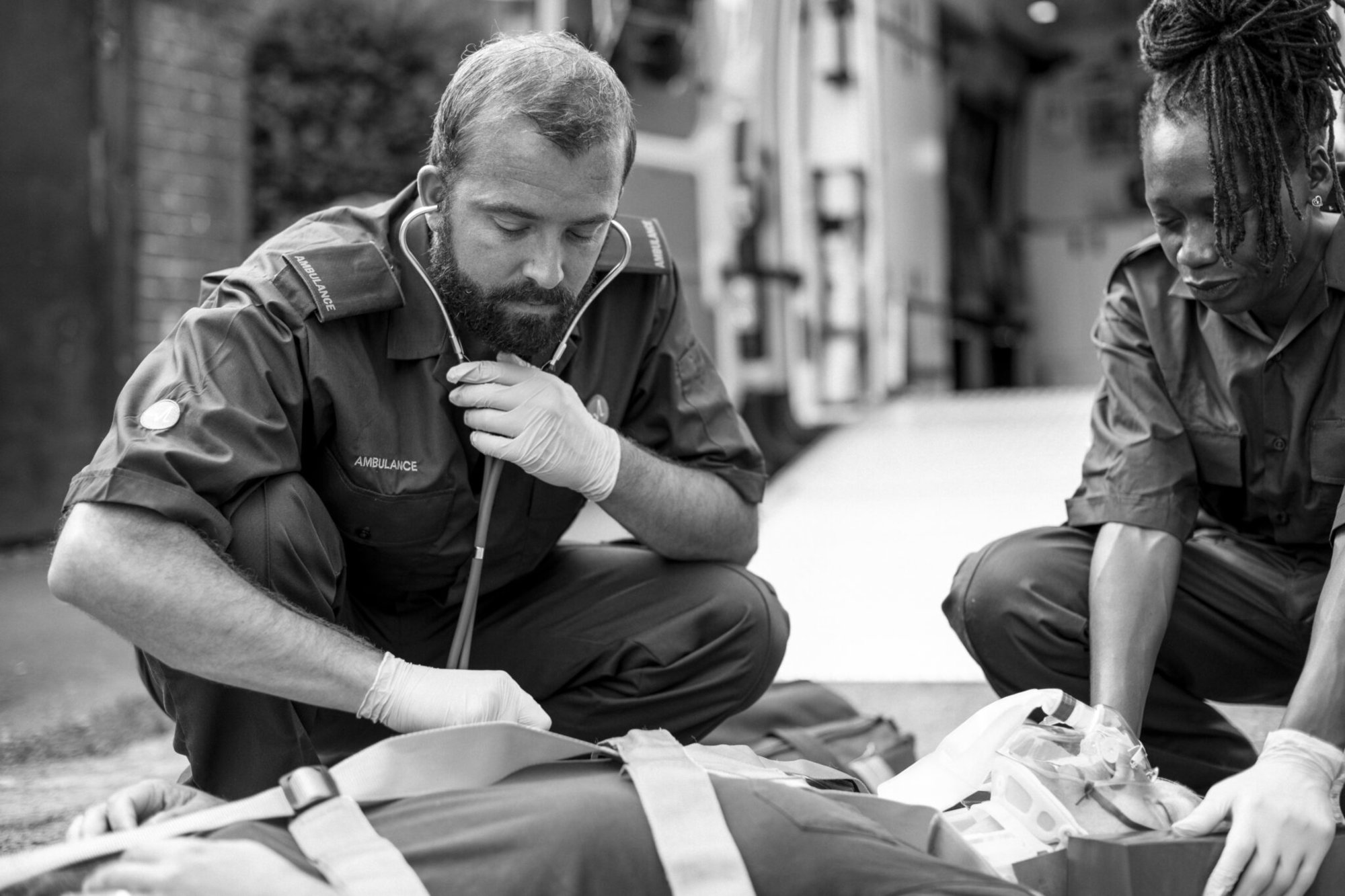
Paramedic team rescuing a critical patient. Photo courtesy of Adobe Stock
The Emergency Medical Services (EMS) profession has been around in some form or another dating back centuries, from the Romans transporting their wounded by horse and carriage to modern day ambulances equipped with sirens, lights, GPS, and other technological advancements. As recent as the mid-20th century, many emergency medical workers were just ambulance drivers hired to drive the wounded and sick to a hospital with minimal medical care involved.
These days, paramedics have continued to evolve, with many able to revive the dead through medicine, take over a sick person’s breathing, and stabilize a human heart using electricity. EMS workers respond to plenty of low-adrenaline calls, but regardless of how they perceive their patient’s concerns, they recognize it’s an emergency to the caller who dialed 911.
There are also high adrenaline calls, and some cities have them more often than others. In fact, many EMS workers have witnessed and helped with some of the worst disasters our world has seen. From suicide bombers, the 9/11 terrorist attacks, to juvenile sexual assault cases, EMS workers are regularly exposed to the worst side of humanity. The public often doesn’t realize the extent of what a paramedic can do until they are dying and in need of help.
In recognition of the courage and sacrifice required by these medical heroes, President Gerald Ford signed a proclamation in 1974 to enact the Emergency Medical Services (EMS) Week. This year, we are celebrating these frontline medical workers from May 17 to May 23.
In an effort to translate the rigors of life as an emergency medical worker, Coffee or Die recently caught up with five paramedics who told us in their own words what the profession means to them.
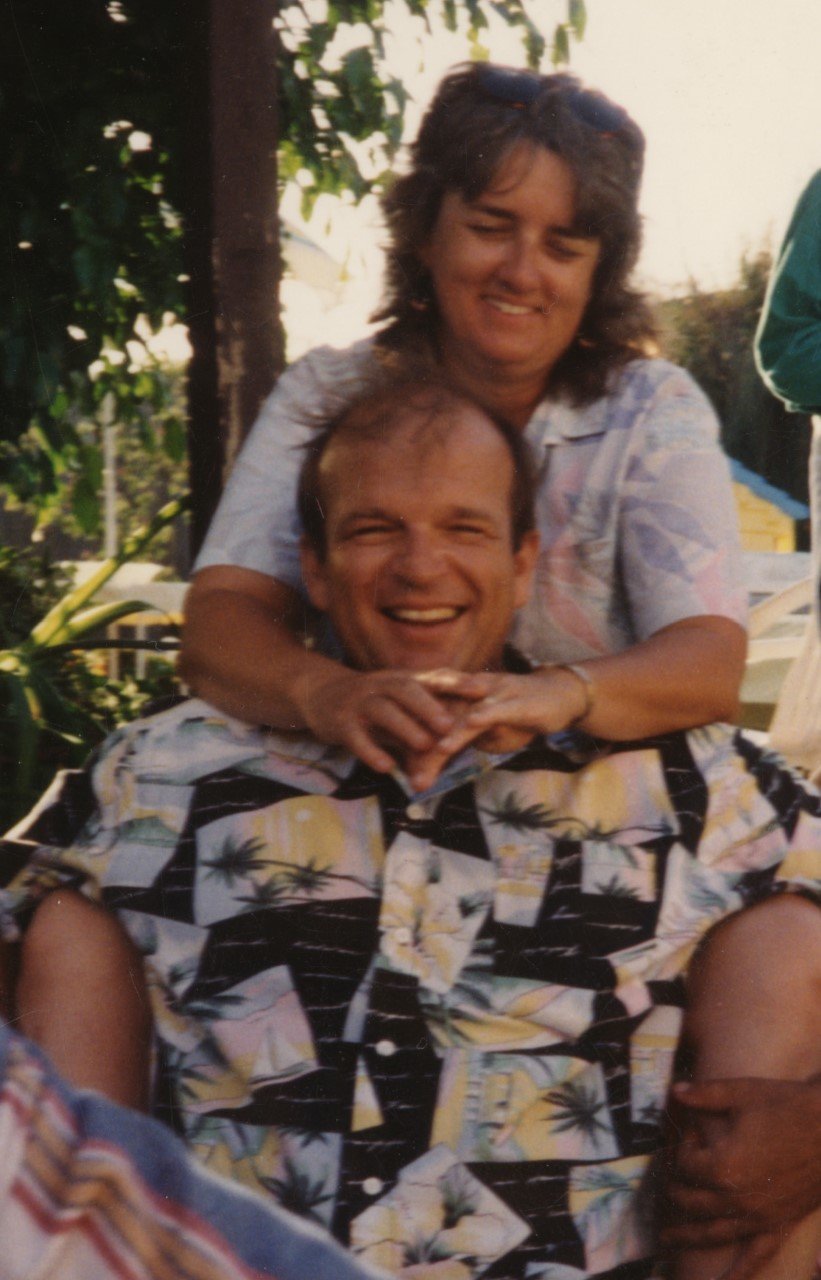
Thom Dick has been in EMS for 44 years. He relied on his background in journalism to become one of the original staff members of the Journal of Emergency Medical Services (JEMS). He has written approximately 500 articles and four books over his career and is now retired. He described his most recent book, “People Care“: “It’s basically about how to recognize and manage your talent and how to love taking care of sick people for 40 years.”
Dick believes that you are either born with the ability to be a paramedic or you aren’t. “To recognize, process, and respond to other people’s emergencies — that means you have to have the inclination to help, which requires talent, not a hero instinct, not a craving for recognition from other people, but a willingness to serve,” he said.
Burn out is a real concern with the long hours and stressful situations paramedics encounter, and Dick said that when you start to lack compassion and empathy, it’s probably time to find another job. “There’s nothing dishonorable about walking away from it,” he said. “You know — there is dishonor in staying when you hate it and you know you’re doing a shitty job.”
The defining call of Dick’s career was the Flight 182 Pacific Southwest Airlines (PSA) airplane that crashed in a residential area in San Diego after colliding with a smaller plane. In total, 144 people died, including passengers and residents who were hit on the ground, and 22 houses were destroyed in the San Diego suburb.
In addition to the EMS on the ground, the U.S. Navy also responded to the disaster as backup, however neither agency knew what the other was capable of. That factor combined with no interagency radio channels to coordinate response and establish a plan led to a disaster response. “We were overwhelmed,” Dick said. “We didn’t have a disaster plan.”
When asked what being a paramedic means to him personally, Dick said, “I think it’s a trust. It’s a trust between you and a medical director, and it’s a trust between the public and you. It’s a willingness to serve people and a willingness on their part to be served by somebody they don’t know in the middle of the night showing up in their most private place.”
Dick said being a paramedic “felt like the most natural thing in the world.”
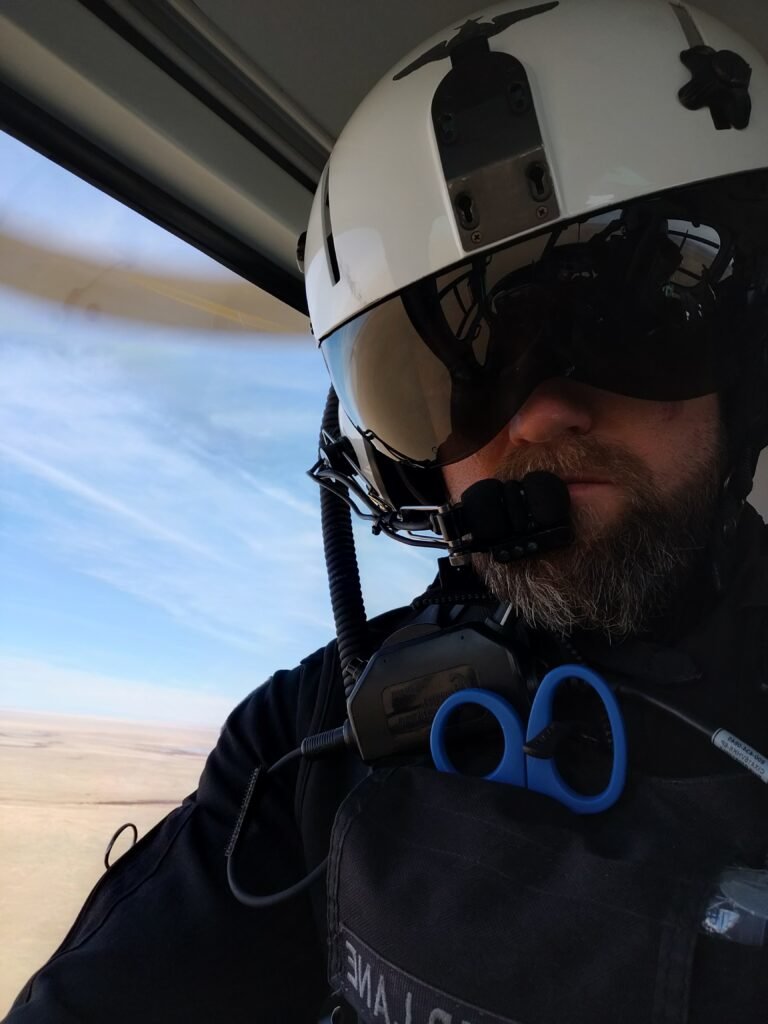
Josh Lane started out as an EMT in 1998. He climbed the totem pole and is now a flight medic manager at a service based out of Colorado. He still flies with his service, taking care of patients mid-flight once or twice a month. Most of Lane’s time is now consumed with teaching paramedics and managing a flight service, both of which taking a lot of time to maintain.
Lane believes that what defines a paramedic is a particular quality: “A silent confidence of ‘I don’t want people to get hurt, but when they do, I want to be the one that’s there.’” He clarified that it’s not about being an adrenaline junkie or wanting recognition as a hero. “[When] somebody gets really hurt, we want to be the ones to be there because we know we can do the job.”
When speaking about what he and his fellow flight medics do, he said, “If you watch what I can do, let me prove myself if they want to be in the position to help. […] Who knows where that drive comes from, whether that’s something they’re born with or maybe that’s something that they’ve kind of learned. Every single one of my guys, you could give them the world’s worst call and you know they’re not going to bat an eyelash. They’re just going to walk straight through it and do the best they can.”
As an instructor, Lane said he likes to instill in his students the concepts of paramedicine and let them figure out their actual practice of medicine. He gave an example of responding on a 911 call to a drunk homeless person in the middle of the night. These types of calls can be aggravating, especially if it’s a recurring call, but Lane said it’s important to empathize with the patient. “When he was a young boy, he didn’t dream of being homeless,” Lane said. “He didn’t dream of having a family he doesn’t get to see. He didn’t dream of sleeping on the street. But he’s a human and […] this is not his life goal.”
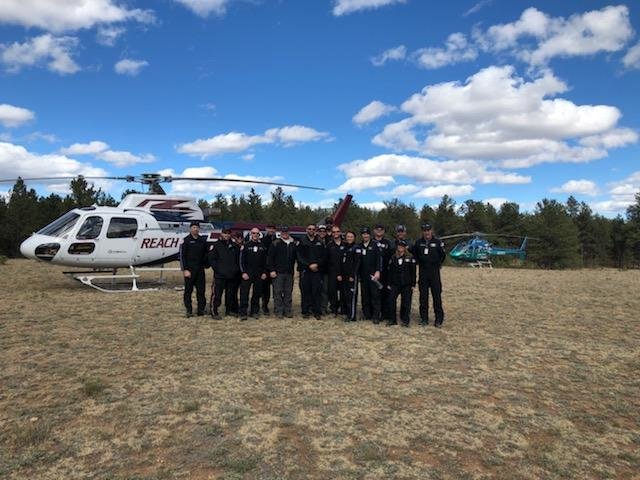
When asked what being a paramedic means to him, he said he’s not sure whether his personality traits made him a paramedic, or being a paramedic made him who he is. “It’s a life call,” he said, adding that he tried to move away from paramedicine and run a CrossFit gym. But when people asked him what he did for work, he always said paramedic. Eventually, he went back into the field.
Being a paramedic has given Lane “the confidence to know no matter what happens in life, I will handle it. Right?” Lane said. “And I feel like I know, no matter what, I will handle it, and I will be okay no matter what.”
The defining moment in Lane’s career came when he responded to a call about a middle-aged female sitting in her car with the engine running and the garage closed up. She denied any suicidal thoughts when she was being evaluated, but Lane had a suspicion that she wasn’t telling the truth. The woman’s children had recently moved out of her home, and he thought she might be experiencing some sort of empty nest syndrome.
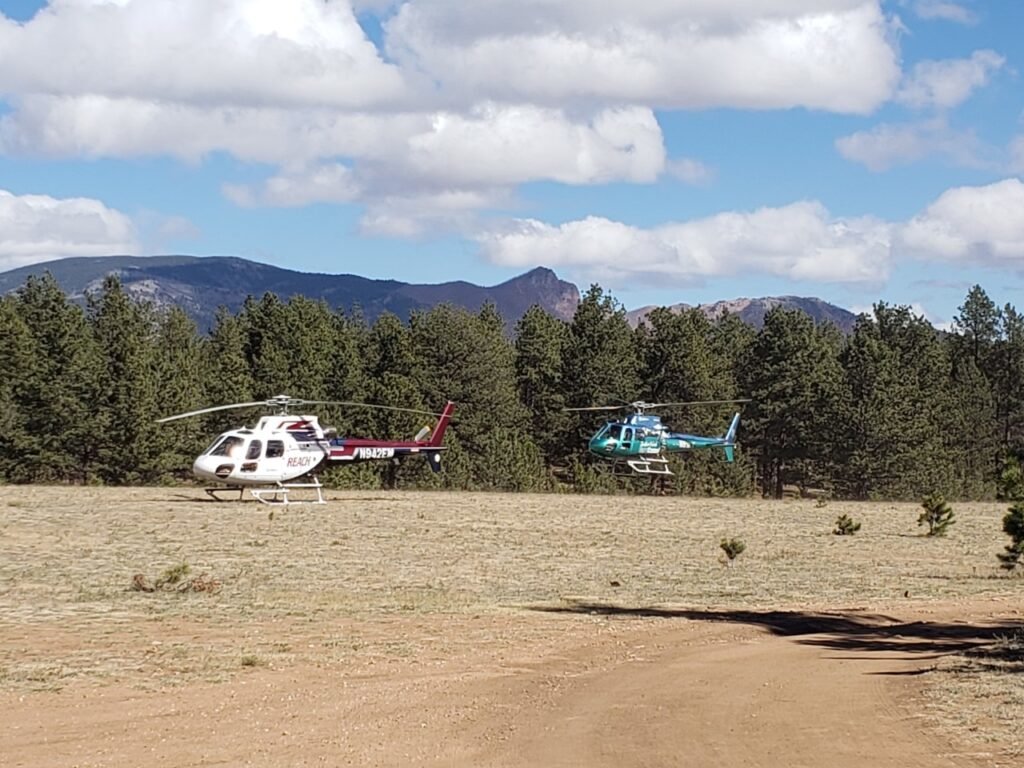
She convinced him that she was not suicidal, but he gave her all the resources he could and requested that she use them if she had any suicidal thoughts at all. A week later, she hung herself. “God damn it! You know — like, I fucking knew this the whole time [that] she was lying to me, but I didn’t want to call her out on her shit. And, you know, I should’ve been more aggressive there,” Lane said, calling it a wake-up moment. “It takes calls like that — like looking in a mirror. It’s so easy to disassociate yourself to the plight of what your patients are going through.”
That call refreshed Lane’s outlook on being a paramedic and reminded him of things in his personal life. “That call really reminded me of like, hey — this is not happening in a vacuum, and the things that you deal with on the streets you could be dealing with in your own personal life as well. That call really made me check in with the people I love more. Which I think was […] a huge lesson.”
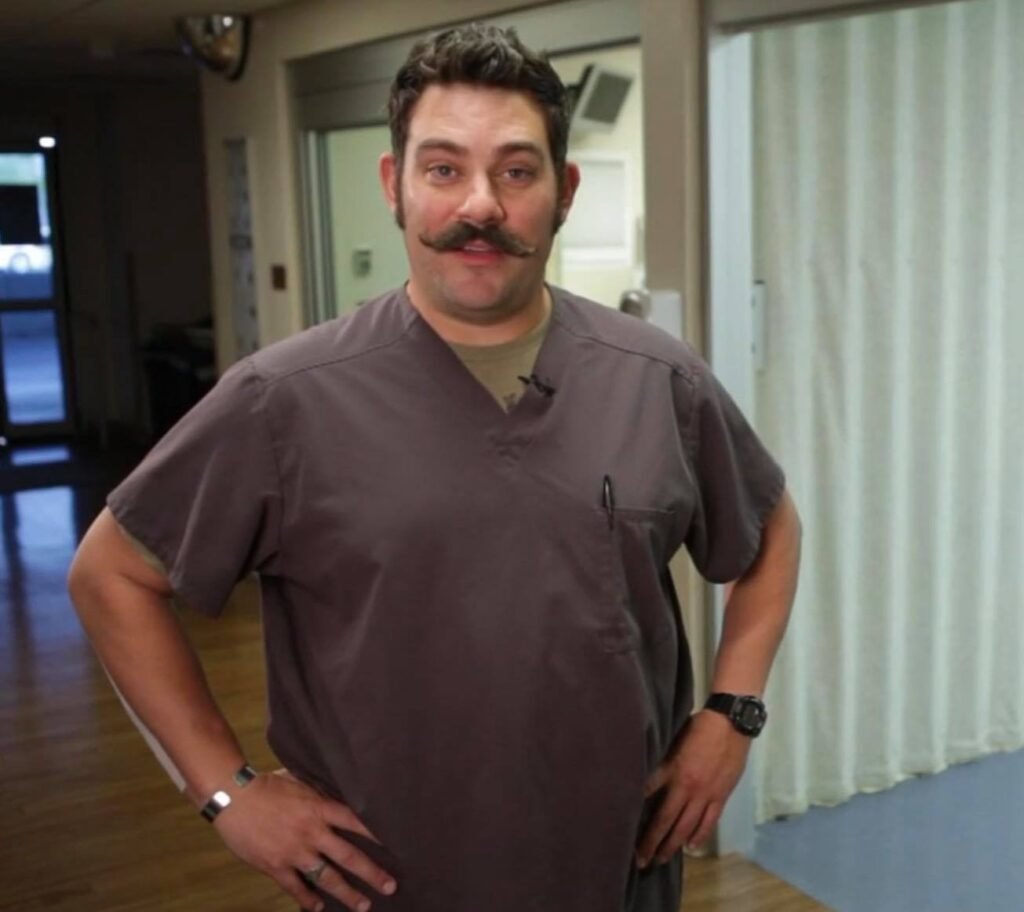
Daniel Moloney is a U.S. Navy veteran and has been working in EMS for 11 years. He described paramedics as having a willingness to sacrifice, being honesty, and being kind and caring while also being strong and stern. “Someone who can accept that death will happen and do their best to make a difference,” Moloney said, adding that he doesn’t feel guilt when someone dies because he knows he did his best to help them.
To Moloney, being a paramedic means “being trusted,” he said. “People have faith in us to do what’s right. You have to always do what’s best for them. Putting others before yourself sometimes. Whether it be a pt (patient) or your partner. Living a life of service. People call you on their worst [day]. No one in the world is trusted more than a paramedic. Not a doctor, nurse, teacher, or police. We can walk into a home. Take someone[‘s] baby while they are ill. Go through their stuff. Wait at home with their kids while they get treated, and they never question us.”
Many 911 calls require paramedics to perform tasks that they don’t teach in school. At times, paramedics have to rifle through belongings for evidence of what someone overdosed on or medications that could indicate medical history for an unconscious patient.
A defining moment in Moloney’s career came after attempting to resuscitate a Vietnam veteran after he had gone into cardiac arrest. Moloney explained that after transporting the patient to the emergency department, his family of four brothers and their mother arrived. All four brothers, as well as the patient, were in an airborne unit during the war. Moloney said that he asked the mother if there was anything he could do, and she just gave him a hug. He asked if they knew what the patient’s after-death wishes were, and he was told that all he wanted was a military presence at his funeral. Moloney contacted the Patriot Guard Riders and fulfilled that request.
Afterward, the mother thanked him and said that everything that happened was thanks to him. “I don’t for one second think it was because of me,” Moloney said.
“I was just a tool in all of it. Though it made me happy that she had happiness. We can’t save them all. But we can contribute to be good people to others in [their] time of need.”
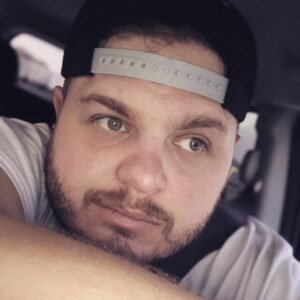
Austin Bloyer has been working as a paramedic for two years. Prior to EMS, he was working in a coffee shop. Bloyer said he isn’t the type of person who likes being stuck in a building all day, and practicing medicine in the streets meets his needs.
“A paramedic is someone who wants to be the rock in the middle of a storm,” he said. “They see the need to help everyone they can. They understand that people are calling them on their worst days, and when they show up on scene, they have to be able to not only take control of the scene but do it with compassion and caring.”
“I have always loved the medical field and the knowledge that comes with it,” Bloyer said, adding that walking across the stage during his paramedic school graduation was an amazing feeling.
While he wasn’t able to pinpoint an experience that made him resolute in what he does as a paramedic, Bloyer said that he enjoys providing life-saving care in stressful situations and every call he answers solidifies his place in this field.
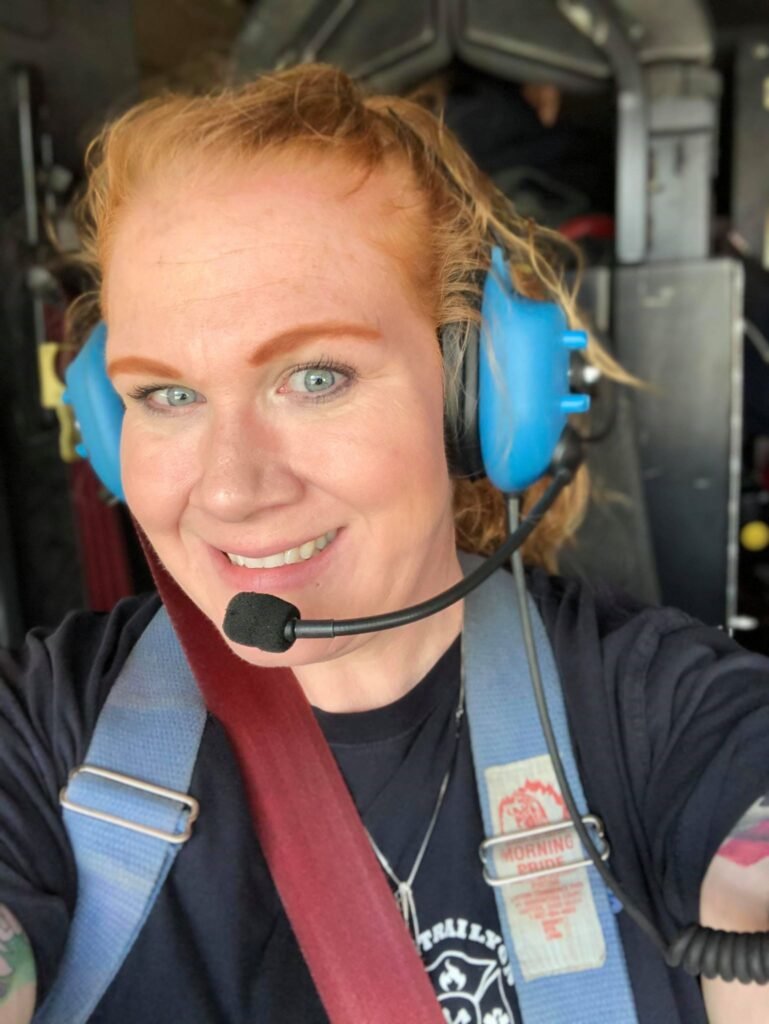
Katie Brimhall has been working in EMS since 2016. She comes from a family of medical professionals with her mother and grandmother working as nurses and her cousin in the military as a corpsman. She said she was destined to join the ranks within EMS. Brimhall obtained her paramedic license in 2018 and, much like Bloyer, while she loved the medical field, she didn’t want to be confined to buildings. EMS checked all the right boxes.
Brimhall’s passion has led to her current project: setting up a community paramedic program in rural Nevada. Community paramedics typically make house calls for people who are unable to get to the clinics. They help manage medications, set up doctor appoints, and other preventative services. Setting up a community paramedic program is not an easy task.
“I am always humbled and honored to be allowed to do what I do,” Brimhall said of being a paramedic. “Strangers literally trust me with their lives, with their kids’ lives. This constantly drives me to be a better person and better medic.”
She believes the defining qualities of a paramedic are confidence, knowledge and, above all else, kindness. “We give a lot of ourselves to our patients. Much of what we do is just work, but there are a lot of rewarding instances where we make a very impactful change in not only the future of our patients but in the future of their families and friends,” Brimhall said.
One call that impacted her significantly was a child who severed their ear. Even though the injury wasn’t life threatening, it was obviously traumatic for the child. “I’m not sure why, but that call will always stick with me because of how I was able to bond with this terrified child and calm them and the family while I administered care,” she said. The family later thanked her for the compassion that she showed them.
“I love this career because it allows me to give more to people than I ever imagined I could.”
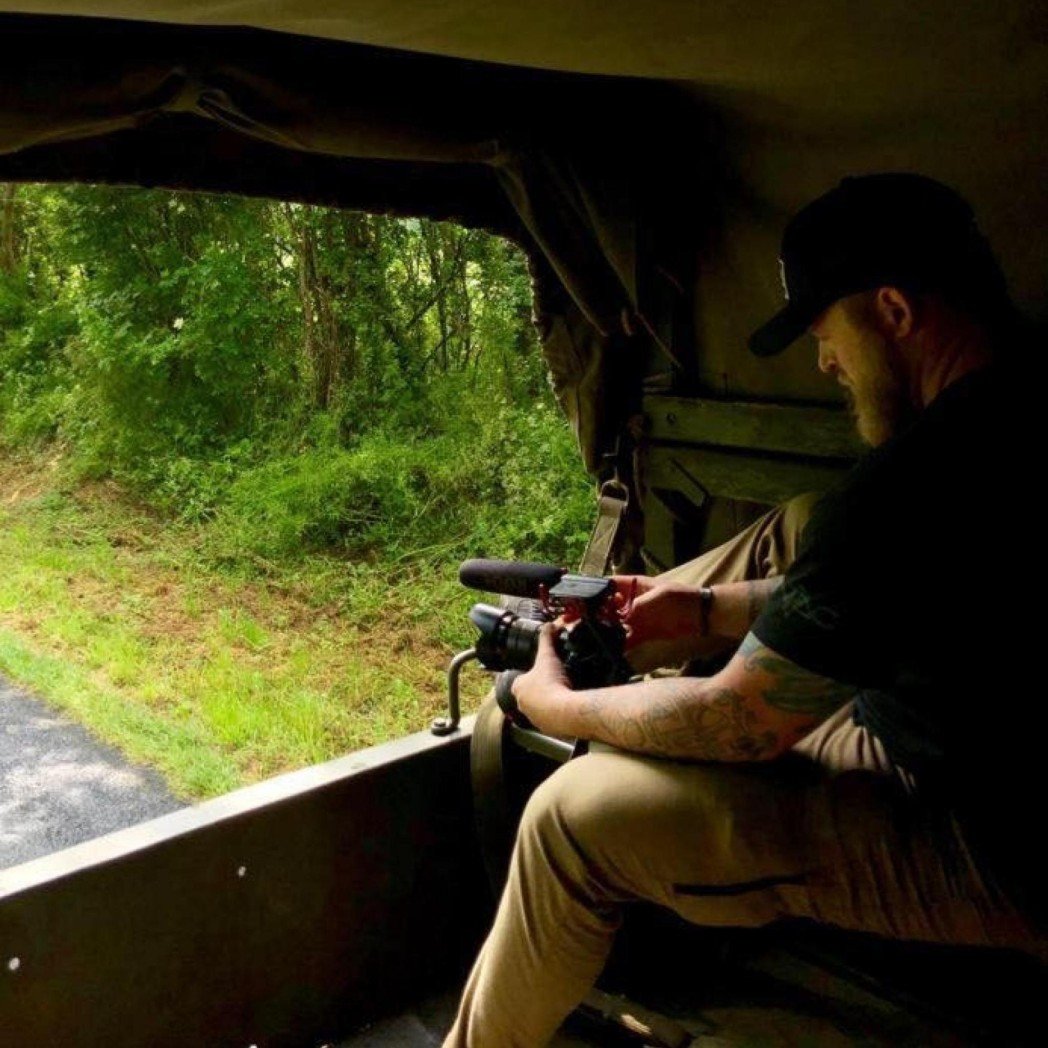
Joshua Skovlund is a former staff writer for Coffee or Die. He covered the 75th anniversary of D-Day in France, multinational military exercises in Germany, and civil unrest during the 2020 riots in Minneapolis. Born and raised in small-town South Dakota, he grew up playing football and soccer before serving as a forward observer in the US Army. After leaving the service, he worked as a personal trainer while earning his paramedic license. After five years as in paramedicine, he transitioned to a career in multimedia journalism. Joshua is married with two children.
BRCC and Bad Moon Print Press team up for an exclusive, limited-edition T-shirt design!
BRCC partners with Team Room Design for an exclusive T-shirt release!
Thirty Seconds Out has partnered with BRCC for an exclusive shirt design invoking the God of Winter.
Lucas O'Hara of Grizzly Forge has teamed up with BRCC for a badass, exclusive Shirt Club T-shirt design featuring his most popular knife and tiomahawk.
Coffee or Die sits down with one of the graphic designers behind Black Rifle Coffee's signature look and vibe.
Biden will award the Medal of Honor to a Vietnam War Army helicopter pilot who risked his life to save a reconnaissance team from almost certain death.
Ever wonder how much Jack Mandaville would f*ck sh*t up if he went back in time? The American Revolution didn't even see him coming.
A nearly 200-year-old West Point time capsule that at first appeared to yield little more than dust contains hidden treasure, the US Military Academy said.












